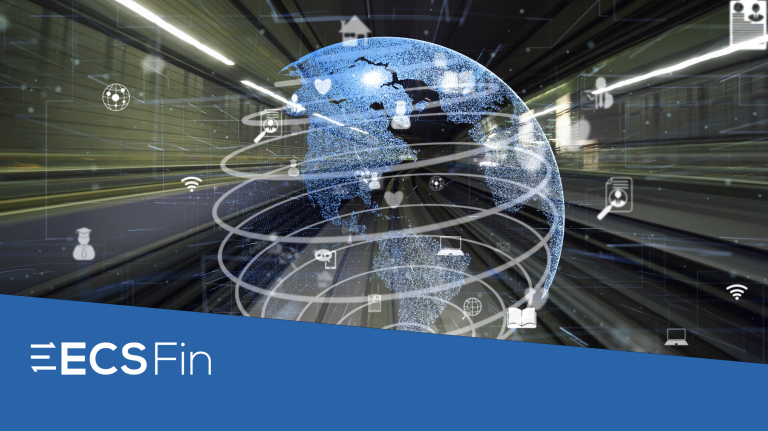About Us
Blog
Foster Standarization in Fintech Industry with API connectivity and ISO 20022 standards
APIs and ISO 20022 standards entice several countries to implement open banking and follow a standard messaging language incorporating a modelling methodology and a set of XML and ASN.1 design rules to harmonize the payment landscape. Fortunately, these two initiatives are levelling up the playing payment fields for banks, corporates, and capital markets, for cross-border payments and opening new revenue streams.
What’s critical for experiencing seamless cross-border payments? Well, speed, transparency, remittance services, and real-time updates are the key drivers that benefit economies worldwide, international trade, and supporting economic growth. However, the legacy systems don’t often speak the same language and deliver excellent connectivity for the beneficiary and payee.


APIs and ISO 20022 standards entice several countries to implement open banking and follow a standard messaging language incorporating a modelling methodology and a set of XML and ASN.1 design rules to harmonize the payment landscape. Fortunately, these two initiatives are levelling up the playing payment fields for banks, corporates, and capital markets, for cross-border payments and opening new revenue streams. What’s critical for experiencing seamless cross-border payments? Well, speed, transparency, remittance services, and real-time updates are the key drivers that benefit economies worldwide, international trade, and supporting economic growth. However, the legacy systems don’t often speak the same language and deliver excellent connectivity for the beneficiary and payee.
ISO 20022 and APIs
Standardization is the core to foster payment processes and help organizations level up their operations, people, and processes by mitigating unnecessary data travels and expensive tools/platforms. API and ISO 20022 drive transparency and standardization in process automation and boost intelligence and interoperability.
An API is a set of protocols and functions that is used by the application software to provide more excellent functionalities and invoke services to the connected applications. Data can be transferred or accessed through the API, be it checking the weather conditions, gaining knowledge about worldwide covid-19 variants.
With the implementation of API in the banks and corporate infrastructure, it allows third parties as FinTech’s to access financial information to develop new services and deliver transparent service to the customers. Adopting the ISO 20022 standard acts as a catalyst to offer the standard business process data semantics.
Roadmap for cross-border payments with ISO 20022
Below shared is the structured roadmap with typical three focus areas where these initiatives are enhancing the cross-border payments:
This focus area revolves around the problems or constraints that continuously stem issues for cross-border payment processing. Different financial standards, formats, and protocols make it difficult to communicate between two systems, thus invoking manual intervention. However, ISO 20022 and API establish a shared understanding of streamlining, improving, and automating the cross-border payments. Around the globe, approximately 23 countries have adopted API, and all the banks are ready to adopt ISO 20022 as a common messaging standard to drive change.
However, accepting and sending cross-border payments in Latin America is still challenging for international corporates. Being one of the world's top 10 countries, Latin America has the lowest bank account adoption due to the lack of payments standardization. Moreover, different regulations and diverse local payment preferences add complexity to cross-border payments.
Yet, this region's banking industry is booming, urging the need for bank and fintech platform integration to make the most of their payments modernization efforts and reduce the resources to create in-house infrastructure, making it a region with significant revenue potential.
This focus area addresses the requirement for streamlining the data models and reporting by adopting ISO 20022 to support all security processing flows. Following the rise of the threat and cybercrime cases, it is recommended to better align with a regulatory and supervisory standard where a ''common language is incorporated to deliver the confidence and introduce value-added services.''
This roadmap will focus on improving the relationship between banks and jurisdictions by facilitating cross-border data flows and information sharing and consistent compliance of AML/CFT standards and identifying low risk safe payment corridors.
However, with the proliferation of diverse channels, customers can interact with banks via workstations, host-to-host, mobile applications, and even open APIs to manage the transactions. Thus, leading to the rise of financial crimes, which needs to be stopped. The financial services market in Latin America is making adopting the SWIFT standards to provide the sophisticated digital innovations expected by growing customer needs.
The pendulum of cross-border payments was said to swing between fear of data security and different rules for conversion and mapping from legacy formats. Improving the legacy system interoperability and intelligence with the new policies and regulatory plans has become the third focus area for enhancing the cross-border payment market. Moreover, promoting common data formats and following standard market practices improves the scope for straight-through data processing in existing payments systems and arrangements. This focus area seeks to strengthen links and widen availability between payment systems and reduce the settlement risk.
Final thoughts!
ISO 20022 standards and API connectivity are together offering powerful benefits to the corporates, technology providers, fintech, and banks. ECS Fin is ready to make a difference in the light of the regulations and build a finite collaboration between banks and fintech.
